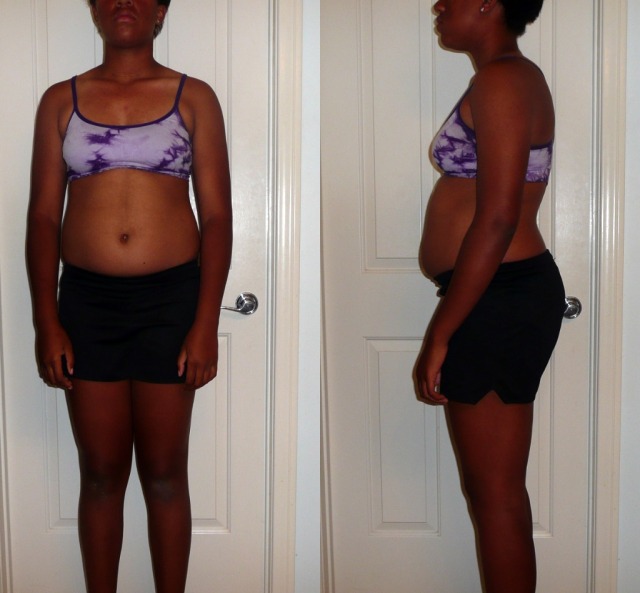Recovering from anorexia
Question
Hi, Mr. Shields!
First let me say that I am SO grateful to be able to address a professional with my concerns and whole-heartedly appreciate any knowledge/advice you could pass my way. Thank you so much for making yourself available via the internet! I know your time is precious, so I'll try to make it quick while still giving you information you might want to get a clearer picture of my situation.
I am a 26 year old female recoving from anorexia. I am 5'6.5'' with a fairly small frame, so I assume 115-120 lbs. would be a healthy weight for me to shoot for (based on BMI charts). I currently weight about 107 lbs. and am looking for a sound nutritional plan to add the weight my body needs in a healthy way.
In order for periods to return, I hear I need to add a degree of good fats. I was also told that in order to avoid gaining the weight strickly around my abdomen to avoid excessive carbs and go for more protein. I would really appreciate your take on these pointers I've received and how you would steer me in the direction of restoration and wellness.
Thank you so much!!!!!
Hi Julie,
Sorry for my delayed response. I hope all is well, and I'm happy to hear that you're turning things around. By recovering, I will assume that you have been getting some professional help to deal with the emotional side of this tough ordeal to get through.
In response to your question here is what I would recommend. First, throw away the scale, I normally say this to the majority of people, but in your case I think it is even more important.
Reason being is that the scale doesn't really tell you much. Sure you can gain 2 lbs in a month and have it be muscle tissue which is good, or you could lose 3 lbs in a day but that would be water weight, which will not change your appearance or make you healthier.
In fact I went to see an exhibit just yesterday titled "Bodies", a fascinating look at the human body in numerous ways. If you live around the DC area, they will be here for another week, and I would strongly recommend checking it out. If not you can see where they will be next by going to the website here www.bodiestheexhibition.com . Reason I mention this is as I was walking through it, even having a great knowledge of the human body I was amazed to see how much organs, tissue, muscles, bones, etc that actually comprises our body, and all that accounts to weight. Yet, we only tend to think of our bodyweight as being represented by fat or muscle.
Ok, on to your specific question nutritionally speaking. Yes, you are right in your assumption that you do want to include some healthy fats in your diet. Also, while these are important for menstruating, you will also need to make sure that you have adequate body fat as well. Fats, actually help regulate our hormones, so if you're deficient in them, or not carrying enough on your body menstruating ceases, which can then lead to weakening of the bones.
As far as healthy fats, you can get them from nuts (walnuts especially), peanut butter, salmon, tuna, cooking oils, to name a few. Don't go over board in adding fat to foods such as butter and margarine. But, try to eat foods that contain omega-3 fatty acids on a daily basis. The 2 main types of essential fatty acids (EFA's) are omega-3 and omega-6s. We tend to get way too much omega-6 in our diets, and not enough omega-3s. So, opt for the foods I listed above, such as nuts, salmon, tuna, eggs that are labeled as having omega-3 would even be a good choice.
As far as carbs go. While taking in too many carbs can lead to weight gain, I would be more conscious of getting too many simple carbs (sugar, from soda, cookies, fruit juice, flavored yogurts, etc), than I would be of complex carbs (oatmeal, potatoes, corn, tomatoes, whole wheat bread). Complex carbs are for our bodies like gas is for a car. Just be careful of your portion sizes, as it's easy to get a ton of carbs, and skimp on the protein.
When looking at your plate you want your protein source and carb source in visually equal portions, along with a veggie ideally, or at least a piece of fruit. I would recommend a 4:1 ratio of veggies to fruit.
I hope this helps you a little, but it's nearly impossible to give you all the info you need in one email.
If you ever need future help I would be happy to help. Feel free to email me [email protected]
Also, in the next month I will be launching an online personal training website which will discuss nutrition and exercise in much greater detail. So if you're interested shoot me an email and I can let you know when it's ready.
Best of health to you,
Mark Shields
ps- If you could leave me some feedback so I can continue to improve it would be appreciated.
- Prev:Milk
- Next:Nutrition for Healthy Gain
Related Articles
-
Face fat
QuestionHey! My problem lies with the fat on my face. The thing
-
diet for losing weight
QuestionMy Dear Sir, I would be happy if you answer MY que
-
Gutt and Thighs
QuestionI wanted to get advice on how to lose the belly and the f
-
hunger pains
Questionwhich is better when dieting, to not eat at all between m
-
nutrional supplement
Questionmy father 71 years old he had brain haemorrhage he is wea
-
my dad needs to lose weight.
QuestionMy dad is 52, 58, 190 lbs, and has heart problems. He hat




